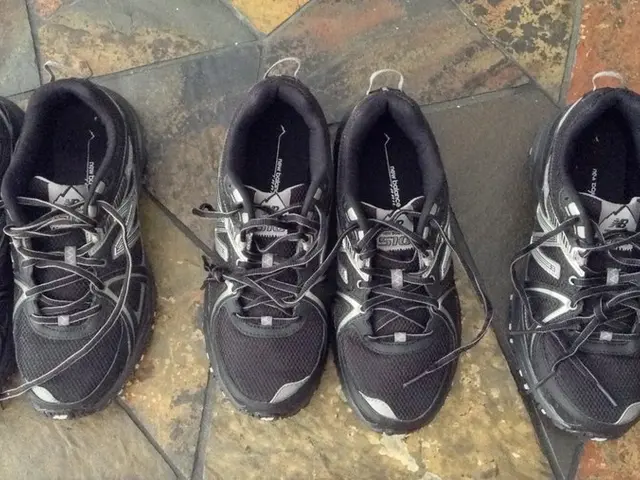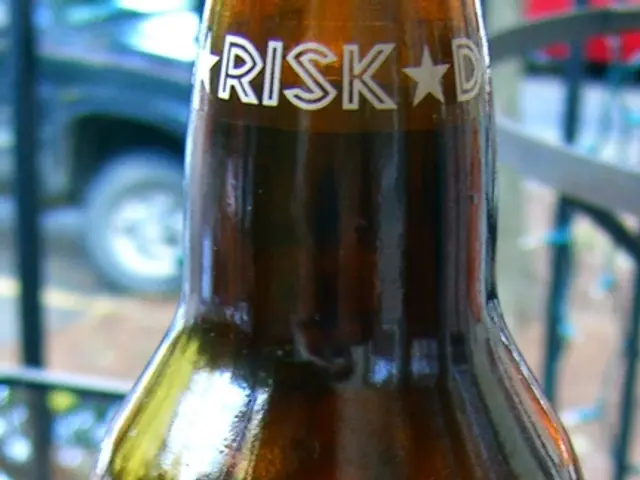MRSA Spread: Methods, Preventive Measures, and Additional Insights
Methicillin-Resistant Staphylococcus aureus (MRSA) colonization describes the presence of MRSA bacteria on or within the body, without causing noticeable symptoms of infection. People with MRSA colonization can unwittingly transmit the bacteria, posing a concern for healthcare professionals, especially in healthcare settings where it can lead to harmful infections.
MRSA bacteria can reside in moist areas like the nose, throat, groin, armpits, skin folds, perineal area, and skin surfaces. Although it does not produce symptoms, MRSA presence can be problematic because the bacteria have developed resistance to many common antibiotics, making treatments more complicated and potentially riskier, particularly for vulnerable individuals.
MRSA can spread through close contact, sharing unclean equipment or supplies, environmental contamination of household surfaces, and direct contact with infected or colonized individuals. Colonization can sometimes lead to full-blown infections, particularly if the immune system is weakened or there's a wound.
To minimize the risk of MRSA colonization and infection, it is advisable to follow hygiene guidelines, including regular hand washing, showers with antiseptic soap, keeping wounds covered and clean, avoiding shared personal items, washing clothes, sheets, and towels in hot water, and regularly disinfecting surfaces.
In medical settings, healthcare professionals may screen individuals for MRSA, particularly those undergoing surgery, by swabbing potential infection sites. If MRSA is detected, they may prescribe nasal creams, body washes, and shampoos to help reduce the bacteria for a period of 5-10 days.
Signs of MRSA infection include skin pain, redness, pus, swelling, and the area feeling warm to the touch. By adhering to hygiene guidelines at home and in medical settings, individuals can help lower their chances of MRSA colonization and subsequent infection.
Further details from research suggest that MRSA colonization can resolve on its own, similar to other bacterial infections, but the likelihood and timeframe for such resolution can vary among individuals, influenced by factors such as the body’s immune response, previous use of antibiotics, presence of wounds, and overall health. Despite this, there is no guaranteed timeline for spontaneous clearance, and targeted decolonization strategies may be necessary for persistent MRSA colonization.
- Learn more Discover more about MRSA.
- Does MRSA go away on its own?
- Does chlorine kill MRSA?
- Will I always carry MRSA bacteria?
- MRSA, a superbug, can reside in various moist body areas even without showing symptoms, making it infectious and potentially problematic due to its resistance to common antibiotics.
- In healthcare settings, especially those dealing with chronic diseases and medical conditions, MRSA can pose severe risks, especially in workplaces that prioritize wellness and fitness-and-exercise, as it can easily spread and cause harmful infections.
- Adherence to health-and-wellness guidelines, such as regular hand washing, disinfecting surfaces, and maintaining personal hygiene, can help minimize the risk of MRSA colonization and subsequent infections.
- Skin conditions like wounds can potentiate the risk of MRSA colonization and eventual infections; therefore, keeping them covered and clean is crucial.
- Medical-conditions that weaken the immune system or create openings in the skin, such as respiratory conditions or surgical incisions, make individuals more susceptible to MRSA colonization and infections.
- Therapies-and-treatments prescribed for MRSA infections involve the use of nasal creams, body washes, and shampoos to reduce the bacteria's presence, followed by a period of 5-10 days.
- If a person has MRSA colonization, proper nutrition and skin-care routines, which promote cardiovascular health and overall well-being, can contribute to the immune system's ability to clear the bacteria.
- Mental-health plays a role in recovering from MRSA infections and any other medical conditions, as stress and anxiety can weaken the immune system and prolong recovery time.








